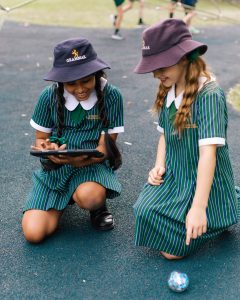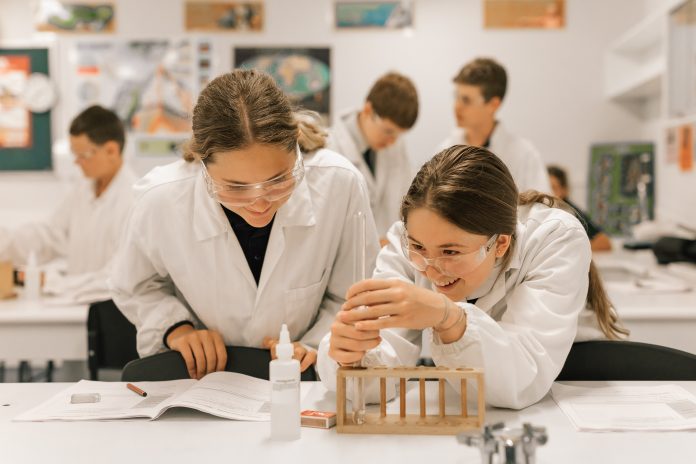Sunshine Coast educators have welcomed new data that shows Australian students have risen in global calculations for mathematics and science, outstripping many of their international peers.
In a test of 580,000 students from 64 countries last year, 14,950 Year 4 and 8 pupils from 571 Australian schools made up ground.
The results of the 2019 Trends in Mathematics and Science Study show Australia’s Year 4s ranked 14th out of 58 nations for science (up 11 spots) and 27th for maths (up one)
Among the crop of participating Year 8s, the nation’s students climbed into the top 10 out of 39 countries for both science and maths – up eight and seven places respectively.
TIMMS is held every four years and tests a student’s knowledge of the content of a defined curriculum, unlike the Programme for International Student Assessment (PISA) which evaluates how well students apply reading, maths and science skills to situations.
Sunshine Coast Grammar School’s Dean of Curriculum and Innovation, Leonie Butler, said it was fantastic to see that Australian students were improving relative to the rest of the world in maths and science.
She said that since implementation of the Australian Curriculum teachers had been working extremely hard to bring students up to the higher standards described in each year level band.
“As time goes on, we have been making gains, but it does take time for this this to be reflected in the standardised tests of our older students.
“NAPLAN scores have been improving, too, according to the statistics and we are looking forward to seeing what the Year 8s of 2020 will be able to achieve on the next PISA Test when they are Year 10 students in 2022.
“Their 2019 Year 7 NAPLAN data suggests we can expect good results from their numeracy scores.
“A greater emphasis on teaching students’ skills such as scientific enquiry, problem solving and analytical thinking rather than content for the past decade has also had a positive impact on student outcomes.’’
Like this story? Get more just like it direct to your inbox by subscribing to our free daily news feed: Go to SUBSCRIBE at top of this article to register
University of the Sunshine Coast education lecturer, Dr Beverley Dann, said that the latest data, while encouraging, had to be viewed “with some scrutiny’’.
Dr Dann told sunshinecoastnews.com.au the improvement was most likely a reflection of the focus on standardised testing and benchmarking in Australia.
“We have to be careful comparing our students to those in other countries that might have different values and goals,’’ she said. “Basing everything on test scores is a big mistake.’’
Dr Dann said she believed Australia should be less focused on testing and more focused on achieving personal goals for students and measuring them against their own results rather than those of others, like the way athletes work to improve times and performances.
She said problem solving was more important than memorising facts.
“We want to know that all our students no matter what their abilities have the chance to improve and lead productive lives.’’

Last year’s 2018 PISA results painted a bleak picture of students’ development, as Australia placed 16th in reading, 29th in maths and 17th in science.
It was the nation’s lowest scores since the international study started testing 15-year-olds in 2000, with Education Minister Tehan at the time saying the results should ring alarm bells.
Despite acknowledging Australia’s encouraging 2019 TIMMS rankings, Mr Tehan indicated the federal government was not resting on its laurels.
“Our government is focused on improving the literacy and numeracy skills of Australian students because they are the fundamental building blocks of a successful education,” he said.
“These results suggest our education system is moving in the right direction but, as the PISA results last year demonstrated, we all must maintain our focus on student outcomes and achieving the highest standards.”
AUSTRALIA’S 2019 TIMMS RANKINGS
- 14th out of 58 countries for Year 4 science, up 11 places.
- Ninth out of 39 countries for Year 8 science, up eight places.
- 10th out of 39 countries for Year 8 mathematics, up seven places.
- 27th out of 58 countries for Year 4 mathematics, up one place.





